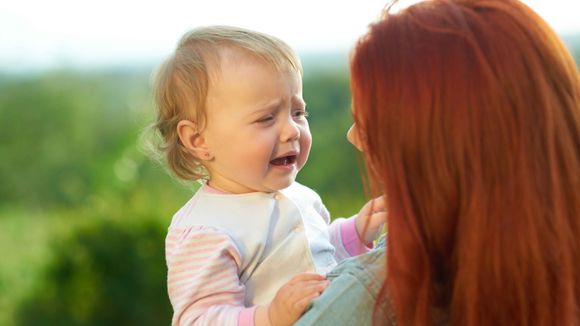What is Attention Deficit Hyperactivity Disorder (ADHD)?
Attention deficit/hyperactivity disorder (ADHD) is a chronic condition that affects millions of children and often persists into adulthood. ADHD involves a combination of persistent problems, such as difficulty maintaining attention, hyperactivity, and impulsive behavior. [ref. 1]
Children with ADHD may also experience low self-esteem, troubled relationships, and poor school performance. Symptoms sometimes decrease with age. However, some people never fully outgrow their symptoms of ADHD. But they can adopt strategies to lead a better life and feel full.
While treatment won't cure ADHD, it can help control symptoms a lot. Treatment usually involves medications and behavioral therapies, but not only. First of all, early diagnosis and treatment are the basis of good development.
The National Survey of Child Health, which covers data for the period 2016-2019 in the United States (NSCH), interviewed parents and reported the following data on the prevalence of ADHD among children aged 2-17 years: 6.1 million children (9.4 percent) were ever diagnosed with ADHD. Of these, about 388,000 young children are aged 2-5 years, 2.4 million children are of school age aged 6-11 years and 3.3 million adolescents are aged 12-17 years. [ref. 2]
Although the data shows an increasing number of children with ADHD syndrome, scientists are constantly looking for the root of the problem and methods to help cope with problem behavior.
In any case, the role of parents is indispensable - it is important to know the early warning signs so that we can help these children as quickly as possible.
Therefore, if you have recently become a parent or are about to come, start recording your observations and concerns immediately after the baby is born. Did you know that babies actually begin to show the ability to regulate their emotions within months of birth? For example, babies learn to take their eyes off the things that upset them in order to self-soothe and control anger. frustration and anxiety. Kids with ADHD don't do these things like babies.
As they move into preschool and increase their language capacity, typically developing children can better regulate their emotions. They also begin to react to situations with flexibility and in generally accepted ways. Children with ADHD, on the other hand, continue to have trouble managing new and challenging situations and reducing distress. They cannot cope effectively, i.e. process negative emotions and continue to strongly express their emotions (verbally or physically), show aggression, or demonstrate more avoidant behavior in order to try to self-regulate.
Symptoms of ADHD
Key features of ADHD include inattention, disinterest, and hyperactive-impulsive behavior. Symptoms of ADHD begin before age 12, and some children notice as early as age 2 or 3.
ADHD occurs more often in men than in women, and behavior may be different in boys and girls. For example, boys may be more hyperactive, and girls may tend to be rather distracted.
There are three subtypes of ADHD:
- Subtype with lack of attention. Most of the symptoms are due to lack of attention.
- Mostly hyperactive/impulsive. Most of the symptoms are of hyperactivity and impulsivity.
- Combined. This is a combination of symptoms of inattention and symptoms of hyperactivity/impulsivity.
Early signs of ADHD in babies: poor sleep, nutrition, frustration

The American Academy of Pediatrics states that children can be diagnosed with ADHD no earlier than age 4, but that doesn't mean ADHD in young children doesn't occur. There are real differences in the brains of children with ADHD that are present at birth and timely intervention should not be postponed.
It's easy to spot children with highly hyperactive or impulsive behavior they're the ones who are extremely active and spontaneous and usually need less sleep than their peers. But hyperactive behavior is not a hallmark of ADHD for all children; A better predictor of ADHD development is actually a child's ability to regulate their emotions.
Specifically, early negative emotionality (a weak stress response and a tendency to react with negative emotions) is a strong predictor of ADHD. Babies who may be at risk for ADHD are those who cry constantly and have trouble self-soothing. who are angry and hard to control. They may also have trouble eating and falling asleep, difficult to tolerate frustration. [ref. 3]
Early Signs of ADHD in Young Children: Intense, Uncontrolled Emotions

When negative emotionality persists into childhood, it seems quite different from a few typical toddler tantrums. Children with ADHD show more aggressive and emotionally intense behavior when they are denied a reward. When presented with challenging tasks, such as puzzles with missing parts, young children with ADHD show more frustration, negative expressions, emotional outbursts, and anger than their neurotypical peers. They also give up such activities more quickly.
In short, young and preschoolers with ADHD are overly reactive. Why? Because they feel emotions more deeply and hold them longer than people without ADHD. They react excessively with positive emotions, such as excitement, which can mean screaming and bouncing for joy for small things. They also react too much with negative emotions, disappointment, and frustration, which often leads to outbursts of anger or aggressive behavior.
When neurotypical young children reach the age of 3 or 4, they can begin, for example, waiting after dinner for ice cream without falling into a nervous breakdown. However, preschoolers with ADHD cry or scream regularly in such minor situations. Even small problems with these children turn into big ones, and they show it with their emotional outbursts. Waiting is almost impossible with them, they have the urgent need and put extreme pressure to get things in the moment.
When upset, young children with ADHD also tend to break out more often, intensely, and disruptively than other children their age. The child's reactions are excessive, completely disproportionate to the event and/or inadequate to the context. For example, refusing dessert after dinner can give rise to such an outbreak. It can last 20 minutes or more, and often the child cannot calm down on his own and may even consider "revenge."
Diagnosis of ADHD in children

Children can only receive a diagnosis of ADHD when they reach school age. Pediatricians and mental health professionals can base a diagnosis of ADHD on a child's behavior and other symptoms. Sometimes it's easy for parents and teachers to confuse certain behaviors with ADHD.
Most young children can sometimes exhibit hyperactivity, impulsivity, and inattention. However, this does not mean that they have attention deficit hyperactivity disorder. There are other evaluation criteria, such as a specialist pediatrician and psychologist can confirm the diagnosis of "ADHD syndrome".
In general, the guidelines for diagnosing ADHD do not cover children aged 3 years or less. However, some doctors diagnose ADHD in young children. Factors that can cause a doctor to suspect ADHD at this age include:
- Genetic factors
- if the mother used drugs or alcohol during pregnancy
- if the mother smoked during pregnancy
- if the mother was exposed to environmental toxins during pregnancy
- premature birth or low birth weight
- problems with the central nervous system at critical moments of development
- slowing of motor development, speech and language
- Behavioural difficulties
- Family history of ADHD









